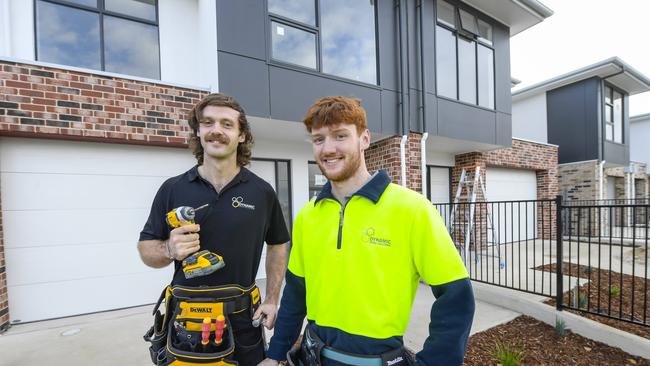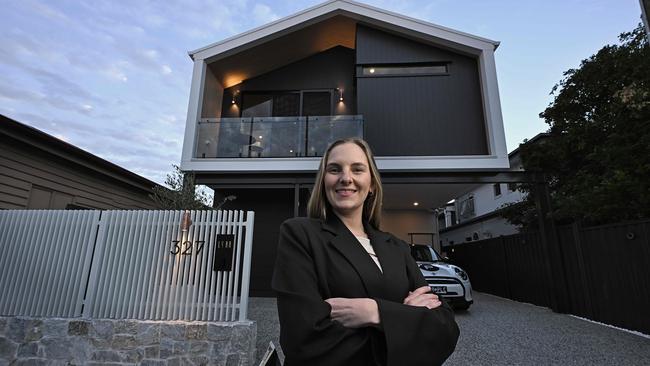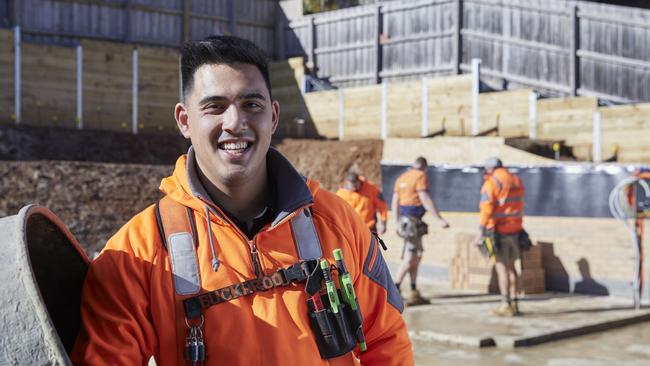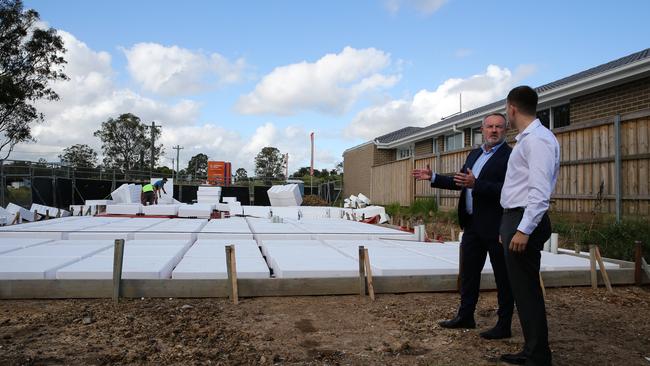Sneaky building tactics all homebuyers should know
If you’re building a home, there are a number of hidden costs that could cost you plenty you need to be wary of.
Property
Don't miss out on the headlines from Property. Followed categories will be added to My News.
As a severe housing shortage continues to put pressure on property prices, the question of whether to buy land and build your own home is certainly one to consider.
Hipages data shows this is exactly what many Aussies are doing, with the number of new home build-related jobs increasing 16 per cent since last year. But the process is far from simple – and even fixed price contracts aren’t immune from cost blowouts.
Here are some of the most important things you’ll need to consider when building a home.
FINANCE FIRST
When it comes to getting a loan, the mortgage is split into two stages in line with the land purchase and the construction, director of First Choice Mortgage Brokers Tony Bice said.
Generally speaking, a bank will lend up to 90 per cent of the value of the land. Then, when it comes time to build, they will add on the value of the construction and lend up to 90 per cent of the overall amount.
MORE: Controversial home loan lender grabs massive market share

If the value of the land goes up before you sign the building contract (which most banks require to be a fixed price agreement), the added value will be taken into account. If it hasn’t gone up in value, you may need to come up with a second 10 per cent deposit to secure the construction loan.
Once construction commences, the bank will make progress payments to coincide with each stage of the build, such as the pouring of the slab, the roof and the glazing.
“The bank will organise a valuer to go out on site to make sure the construction is rolling in line with those progress payments,” Bice said.

HOUSE AND LAND PACKAGES
Organising finance for a house and land package is a bit different, with the bank lending up to 90 per cent of the value of the land plus the value of the construction, which is delivered by the developer as one package.
Housing Industry Association (HIA) general manager Jocelyn Martin said as long as the location and homes on offer are right for you, house and land packages can often be easier than building privately since the developer “takes you on a journey” to design and build your home.

BUYING LAND
If you do decide to buy land and choose your own builder, it’s important to find out whether there are any easements or other things on the land that could impact what you can build, as well as whether the land is in a flood or bushfire prone zone, by contacting your local council and checking your state government land registry, hipages VP of Marketing Nick Ellery said.
ORGANISING THE BUILD
When choosing a builder make sure they are licensed and have all the necessary insurance required by your state, Ellery said.
The company he works for, hipages, has a vetting process that ensures all builders on the platform are fully licensed. It also allows users to compare the quotes of a few different companies, which can make the selection process easier.

hipages tradie Martin Nguyen from Kubra Building Services said it’s important to have a clear understanding of the builder’s contract and what it includes.
In many instances, even fixed price contracts will include “prime cost items and provisional sum items”. These tend to be an estimation of cost – like an allowance – but the actual cost may work out to be less or more than the amount specified.
“As soon as there’s prime costs or provisional allowances, they’re actually paying the difference if it goes over,” Nguyen said.
“And if it goes under, people are often unaware they are entitled to a reimbursement of that.”

If the land you have purchased is on a slope, be prepared to pay a lot more for construction, he said.
Another way costs commonly blow out is when the people change their minds in the middle of the build and choose different materials or inclusions.
Nguyen said it’s important to check other projects the builder has done before signing a contract and to ask for references. During the build, you can engage a private inspector to make sure everything is being done correctly.

STATE GOVERNMENT SUBSIDIES
While the Federal Government’s Homebuilder Scheme is no longer open for applications, most states offer grants for first homebuyers either building a home or buying a newly built home.
Both Victoria and NSW offer a $10,000 grant for new builds in addition to stamp duty exemptions or concessions depending on the value of the property
South Australia’s first homebuyer grant is $15,000
Queensland offers up to $30,000 under certain conditions
Check the website of the revenue office in your state for the full details, including terms and conditions.
More Coverage
Originally published as Sneaky building tactics all homebuyers should know




